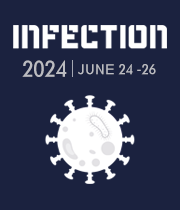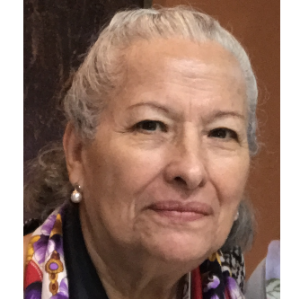Oscar Inacio, Universidade Federal de Campina Grande, Brazil
This meta-analysis aims to verify the efficacy of conventional endotracheal tubes (PVC) and polymer-coated tubes in combating ventilator-associated pneumonia (VAP) in patients ventilated for more than 48 hours. Thus, after observing the statistical graphs, we found that the coate [....] » Read More





































































































Title : Ultrasound for diagnosing pneumonia. The place of the BLUE-protocol
Daniel A. Lichtenstein, Ambroise Pare Hospital, France
The BLUE-protocol is an ultrasound approach of lungs and veins, allowing with fine accuracies an immediate diagnosis of an acute respiratory failure among the six causes which regard 97% of patients seen in critical settings: hemodynamic pulmonary edema, pulmonary embolism, [....] » Read More
Title : Controlling inflammation during respiratory virus infection
Saurabh Chattopadhyay, University of Kentucky College of Medicine, United States
Virus infection triggers rapid induction of antiviral and inflammatory genes in infected cells, leading to an antiviral state in the host. Inflammation, in the early stages of infection, is helpful; however, hyperinflammation can contribute to the pathogenesis. Our lab has been s [....] » Read More
Title : Will the Seine River water jeopardize the athletes' health during the sporting events of the 2024 Olympic Games in France
Claudia Ferreira, Biophytis Sorbonne, France
After describing the situation in which the athletes of the XXXIII Olympiad in France in 2024 from 26 July to 11 August, will find themselves namely, the city of Paris, the Seine River, the medical infrastructure, the past experience with SARS, and giving data on hygiene, pathoge [....] » Read More
Title : Phage therapy in clinical practice: Our experience in 10 cases with different etiology
Alfonso Recordare, Dell'Angelo Hospital, Italy
Difficult-to-treat infections have led to a renewed interest in phage therapy as adjunct to conventional surgical and antimicrobials treatments. Chronic infections, especially when related to biofilm, are difficult to eradicate; in vitro data indicate that phages are active again [....] » Read More
Title : Virus/mutation-agnostic vaccines
De chu Christopher Tang, VaxDome Inc., United States
Respiratory RNA viruses often mutate into new variants with subsets ravaging public health as escape mutants that render contemporary vaccines and antivirals ineffective from time to time. We have serendipitously developed an innovative approach to vaccine development against res [....] » Read More
Title : Inflammation-adjusted vitamin A deficiency is associated with higher Schistosoma japonicum infection intensity among children and adolescents in the Philippines
Susannah Colt, Warren Alpert Medical School of Brown University, United States
Background: Children with intestinal schistosomiasis are at risk for undernutrition, anemia, linear growth stunting, and impaired cognitive development. Vitamin A deficiency impairs immune function against parasitic pathogens. In rodents, dietary-induced vitamin A deficiency caus [....] » Read More
Title : The next frontier in malaria prevention: Pfs230D1 transmission-blocking vaccine’s novel surrogate assay of efficacy
Cristina Meehan, National Institutes of Health, NIAID, United States
In 2023, malaria impacted 247 million individuals across 85 countries, resulting in 619,000 global deaths. The international focus to develop a higher efficacy malaria vaccine is a top priority, yet the complex parasite lifecycle poses a significant challenge to vaccine developme [....] » Read More
Title : Hemophagocytic lymphohistiocytosis syndrome and syndrome of inappropriate antidiuretic hormone ADH release: keep in mind visceral leishmaniasis. Case report and literature review
Daniela Tirotta, Morgagni - Pierantoni Hospital in Forlì, Italy
Introduction. Visceral leishmaniasis is an potentially fatal and neglected tropical disease, according to the World Health Organization’s : mortality is still very high ( 95% ) when untreated. This disease presents a broad spectrum of symptoms (oligosymptomatic infection, b [....] » Read More
Title : Validation of the normandy score- Predictive of abnormal echocardiography- in the management of bacterial native joint and bone infections
Marie Beaufrere, Paris-Saclay University, France
Introduction. Native joint and bone infections (NJBI) are frequently associated with infective endocarditis (IE). Normandy score, based on the patient's valvular assessment, the bacterial species and the hematogenous mechanism of NJBI was published to guide the prescription o [....] » Read More
Title : Abrupt and lethal rare complication: A case report of a 32 year-old male who suffered from pyogenic ventriculitis
Alexis Torres Rodriguez, Universidad Central del Caribe Internal Medicine Residency, Puerto Rico
Introduction: Pyogenic ventriculitis is characterized by ependymal lining inflammation of the cerebral ventricular system and presence of suppurative fluid in the ventricles. Risk factors include a compromised immunity such as human immunodeficiency virus, diabetes, and cancer. T [....] » Read More
Title : Is plasmapheresis the future treatment for Leptospirosis? Case report of a 75-year-old patient with complete recovery after plasmapheresis therapy
Angelica Ludena, Universidad Central del Caribe, Puerto Rico
Leptospirosis is a zoonotic disease produced by spirochetes of Leptospira, with an incidence ten times higher in tropical regions like Puerto Rico, in comparison to the rest of the world. The principal reservoir are rats, dogs, cats and farm animals with excreted infected urine, [....] » Read More
Title : HHV6 encephalitis in an immunocompetent host
Ahmed Esam Mahboub, Tawam Hospital, United Arab Emirates
Introduction: A previously healthy and a fully vaccinated 5-year-old pre-schooler-aged male who presented to the ER with an insidious onset of decreasing level of consciousness and headaches before developing Status Epilepticus, and requiring admission to the PICU; with a final [....] » Read More
Title : Implementing the Covid-19 vaccination programme in the Southwest of England: Lessons from a normalisation process theory perspective
Anne Morris, North Bristol NHS Trust, United Kingdom
Background: Vaccination remains one of the most successful public health interventions in preventing severe disease and death. The roll-out of Covid-19 vaccination programmes has helped protect billions of people around the world against Covid-19. Most of these programmes have be [....] » Read More
Title : Using mathematical models to explore future meningitis vaccination strategies in Ghana
Mark Asare Owusu, University of Cambridge, United Kingdom
The African meningitis belt, a region which stretches from Senegal to Ethiopia including Ghana, has experienced irregular but periodic epidemics of meningitis, primarily due to Neisseria meningitidis for over a hundred years. The introduction of MenAfriVac, a conjugate vaccine wh [....] » Read More
Title : Structured TB risk factors in regions with high and low population density in Russia
Zinaida Zagdyn, Semashko National Research Institute of Public Health in Moscow, Russian Federation
In Russia, with increase in life standard and following it improvement in the TB epidemic situation, socio-demographic, health care managing, climatic and environmental TB risk factors, such as population density, intensity of social contacts, availability of medical care, season [....] » Read More
Title : Factors affecting the outcomes of patients with coronavirus disease (COVID-19) admitted in a tertiary hospital in Iloilo City: A retrospective cross-sectional study
Petersian M. Alcazaren, West Visayas State University Medical Center, Philippines
Background: COVID-19 is a viral respiratory illness caused by SARS-CoV-2, confirmed with RTPCR testing. Considering the heterogeneity of clinical picture of COVID-19 disease, and the threats of its variants, the review of current clinical data and outcome of available management [....] » Read More
Title : Double Trouble: Co-infection with Cryptococcal Meningitis and Japanese Encephalitis
Golden Tamon-Gayo, Baguio General Hospital and Medical Center, Philippines
Background: Cryptococcal meningitis (CM) is the most common central nervous system infection (CNSI) among patients with severe immunodeficiency syndrome secondary to human immune deficiency virus. Co-infection with other CNSI is relatively common especially with TB meningitis and [....] » Read More
Title : A case report of a 22 year old male diagnosed with SLE, with concomitant infections of COVID 19 moderate disease and HIV-AIDS
Petersian M. Alcazaren, West Visayas State University Medical Center, Philippines
Background As the world presently navigates the coronavirus disease 2019 (COVID-19) pandemic, there is a growing need to assess its impact in patients with underlying immunocompromised states, including autoimmune rheumatic diseases, such as systemic lupus erythematosus (SLE), an [....] » Read More
Title : Triple threat: Severe COVID-19-strongyloidiasis-taeniasis co-infection: A case report
Helen Jane Polido, Baguio General Hospital and Medical Center, Philippines
Strongyloidiasis is caused by a soil-transmitted threadworm that is endemic worldwide and is more prevalent in humid climates. Taeniasis on the other hand, is an intestinal infection with tapeworms which is usually acquired by ingestion of parasite’s larval cysts in underco [....] » Read More
Title : Clinical and radiological features of chronic cavitary pulmonary aspergillosis: A case report
Jaret Chessrence R. Consul, University of Santo Tomas Hospital, Philippines
Background: Chronic pulmonary aspergillosis (CPA) is a rare lung disease caused by Aspergillus fungus, o en affec ng those with underlying lung condi ons. Pulmonary tuberculosis (PTB) is the leading cause of CPA worldwide, including an esmated 77,172 cases in the Philippines [....] » Read More
Title : Unveiling the clinical spectrum of pleural tuberculosis: A case series
Jaret Chessrence R. Consul, University of Santo Tomas Hospital, Philippines
Background: Tuberculosis (TB) is a leading cause of adult deaths globally, with the Philippines ranking third, where almost one million people suffer from ac ve TB. Sadly, it claims almost 70 lives daily. EPTB is a rare form of TB, accoun ng for 14-15% of cases in 2005-2007, risi [....] » Read More
Title : Innovative application for the mitigation of airborne pathogens using electrically activated water in air cooling modified device
Nahla Omer Eltai, Qatar University, Qatar
Introduction: The spread of respiratory illnesses, such as COVID-19 pandemic, has posed a significant threat to millions of lives, leading to thousands of fatalities globally. This has sparked a concerning worldwide health crisis, underscoring the pivotal role of airborne transmi [....] » Read More
Title : Assessing Immunity from previous Infections in preventing reinfection: Applying the test-negative study design
Houssein Ayoub, Qatar University, Qatar
Background: The COVID-19 pandemic has highlighted the need to use infection testing databases to rapidly estimate effectiveness of prior infection in preventing reinfection (PEs) by novel SARS-CoV-2 variants. Methods: Mathematical modeling was used to demonstrate a theoretical [....] » Read More
Title : IL-27 as a biomarker for distinguishing between necrotizing enterocolitis and highly suspected early-onset food protein-induced enterocolitis syndrome
Yaun Shi, Children’s Hospital of Chongqing Medical University, China
Background: The initial clinical manifestations and abdominal imagines of neonates with necrotizing enterocolitis (NEC) and food protein-induced enterocolitis syndrome (FPIES) are sometimes similar, however, their prognosis and therapies are different. We aimed to evaluate the ut [....] » Read More
Title : Clinical characteristics analysis of bordetella pertussis Infection in adult cough patients
Xiaoyun Zhao, Tianjin University Chest Hospital, China
Purpose: In contemporary epochs, the prevalence of pertussis has been progressively on the rise, persisting as a formidable health concern. The manifestations following pertussis infection lean towards the atypical, making them easily disregarded or subject to misdiagnosis. Our a [....] » Read More
Title : Isolation and full genomic characterization of G9 group: A rotavirus in China
Ahmed Hamdy Ghonaim, Huazhong Agricultural University, China
Young animals and infants are vulnerable to severe gastroenteritis caused by Group A rotaviruses (RVAs). However, A lack of genomic data exists on the rotavirus A strains circulating in farm animals in China that may infect humans. We therefore screened the fecal samples collecte [....] » Read More
Title : Antiretroviral resistance among HIV-infected patients in the upper southern region of Thailand
Siwimol Phoomniyom, The Office of Prevention and Disease Control 11th Region, Thailand
The trend of HIV infected people in Thailand has been declining since 2000. Owing to the Thailand's National Access to Antiretroviral Program for People who have AIDS (NAPHA) program promoting access to antiretroviral drugs, the use of antiretroviral drugs has been widespread [....] » Read More
Title : Acute complications of Covid-19 infection in pregnant woman during the period 2020-2021
Fatiha Hachani, Kasdi Merbah University, Algeria
Introduction: In December 2019, a new coronavirus identified in Wuhan, China was responsible for the rapid emergence of COVID-19, declared by the WHO a global pandemic in March 2020, responsible for a high rate of mortality and occurrence of acute and long-term complications. [....] » Read More
Title : Impact of an Antibiotic Stewardship Program ( ASP) on antibiotic use, bacterial susceptibilities, and cost of antibiotics: A quasi-experimental study from a developing country
Banan Muneer Aiesh, An-Najah National University Hospital, State of Palestine
Antimicrobial misuse is a worldwide issue, and antimicrobial resistance is considered one of the most challenging aspects of health care. It has been reported that as much as 30%–50% of antimicrobials prescribed in hospitals are unnecessary or inappropriate. Antib [....] » Read More
Title : Containment of an outbreak in Critical Care (ICU): An incident report of a multispecialty hospital in developing world
Raman Sharma, Post Graduate Institute of Medical Education And Research, India
Introduction: Varicella-zoster virus (VZV) infection in healthcare organisations, especially in ICUs, is of serious concern, primarily having admitted critical and immunocompromised patients. Methodology and Results: The report defines the transmission and infection control [....] » Read More
Title : Comparative evaluation of pathogens in Saiful Anwar Hospital's CVCU vs. Indonesian ICUs: A focus on hospital-acquired Infections
Gallusena Erickatulistiawan, Brawijaya University – Saiful Anwar Hospital Malang, Indonesia
This study investigates the patterns of hospital-acquired infections, specifically analyzing bacterial isolates from a variety of clinical samples collected in the Intensive Cardiovascular Care Unit (CVCU) at Saiful Anwar Hospital in Malang, Indonesia, during the year 2022. This [....] » Read More
Title : A rare case of purulent massive pericardial effusion in an 85-year-old male
Ira Vori Nugroho, Universitas Brawijaya Malang, RS Dr. Saiful Anwar Jawa Timur, Indonesia
Introduction: Purulent pericarditis is defined as an infection in the pericardial space that produces macroscopically or microscopically purulent fluid.1 It was a rare but life-threatening condition.2 It may be primary or secondary to another infectious process. There are five pa [....] » Read More
Title : Clinical profile and outcomes of central nervous system infections: a single centre hospital-based study
Sagar Paudel, Tribhuvan University Teaching Hospital, Nepal
Background Central nervous system (CNS) infections, such as meningitis and encephalitis, caused by various pathogens, can lead to serious morbidity and mortality, with diverse symptoms and outcomes. Survivors may face long-term neurological complications, making early treatment c [....] » Read More
Title : Equine polyclonal F(ab)’2 as a rapid and strong therapeutic answer against potential new SARS-CoV-2 surge
Caroline Ballet, Fabentech, France
Successive sub-lineages of Omicron have spread since the occurrence of BA.1 in November 2021. Identified in July 2022, BQ.1 and BQ.1.1 expanded dramatically in Europe and North America. XBB and XBB.1 were first identified in India in mid-August 2022 and quickly spread to become p [....] » Read More
Title : Post COVID-19 syndrome is associated with sex and severity of first COVID-19 episode in Honduras
Manuel Antonio Sierra Santos, Universidad Tecnologica Centroamericana, Honduras
Background/Introduction: COVID-19’s pandemic has had a catastrophic global impact, with nearly one billion reported infections and seven million deaths worldwide. By the middle 2020, several studies described the so-called long COVID syndrome as an emerging and prevalent sy [....] » Read More
Title : Adapted mRNA COVID-19 vaccines have a limited ability to establish herd immunity in the population against Omicron BA.1 and BA4-5 variants of SARS-CoV-2
Pedro Plans Rubio, Public Health Agency of Catalonia, Spain
The emergence of novel SARS-CoV-2 variants has raised concerns about the ability of COVID-19 vaccination programs to establish adequate herd immunity levels in the population. Adapted mRNA COVID-19 vaccines against BA.1 and BA.4-5 Omicron variants can provide a greater immunity a [....] » Read More
Title : The power of cultural validation a global innovative strategy when working with vaccines
Julissa Soto, Julissa Soto Latino Health Equity Consulting, United States
At the onset of the COVID-19 Pandemic, policymakers and public health officials often cited “vaccine hesitancy” as a key challenge to reaching vulnerable populations, including immigrants, Spanish-speaking communities, Latino communities, and others who have been marg [....] » Read More
Title : Effect of a multimodal infection control programme in the reduction of bacterial contamination in the nasogastric feeding tube hubs in residential care homes for elders
Sukki Ho, The Hong Kong Polytechnic University, Hong Kong
Nasogastric tube (NG tube) feeding in residential care homes for the elderly (RCHEs) carries the risk of contamination at the NG tube hub, a crucial connection point in the enteral feeding process. This contamination can lead to the spread of harmful microorganisms, potentially r [....] » Read More
Title : Kluyvera cryocrescens central line associated bacteremia in a hemodialysis patient: A case report and review of literature
Abigail Kristine S. Juat, St. Luke’s Medical Center, Philippines
Kluyvera sp., an opportunistic Gram-negative bacillus found in clinical specimens such as sputum, urine, bile, peritoneal fluid, and blood, rarely causes significant infections. This case report manages a rare Kluyvera cryocrescens bacteremia in a female patient with chronic kidn [....] » Read More
Title : Kluyvera cryocrescens central line associated bacteremia in a hemodialysis patient: A case report and review of literature
Quennie Bien Bien C. Yu, St. Luke’s Medical Center, Philippines
Kluyvera sp., an opportunistic Gram-negative bacillus found in clinical specimens such as sputum, urine, bile, peritoneal fluid, and blood, rarely causes significant infections. This case report manages a rare Kluyvera cryocrescens bacteremia in a female patient with chronic kidn [....] » Read More
Title : Immune transcriptomic analysis of COVID-19 patients with varying clinical presentations
Abdallah Musa Abdallah, Qatar University, Qatar
Background: Coronavirus disease (COVID-19) is an infectious disease with a heterogeneous clinical presentation caused by the novel coronavirus, the severe acute respiratory syndrome coronavirus 2 (SARS-CoV-2). The distinctive features of COVID-19 infection encompass a clinical sp [....] » Read More
Title : Efficacy of oral 20-hydroxyecdysone (BIO101) in adults with severe COVID-19 (COVA): A randomized, placebo-controlled, phase 2/3 trial
Valerie Pourcher, Pitie Salpetriere Hospital, France
Background: SARS-CoV-2 infects human cells through interaction between its spike protein, and ACE2, a key element of the RAS. Thus SARS-CoV-2 may induce an imbalance of the RAS leading, among other symptoms, to severe pneumonia associated with COVID-19. We h [....] » Read More
Title : Clinical characteristics and outcomes of pediatric patients with suspected and confirmed coronavirus disease 2019 (covid-19) infection admitted in a tertiary government hospital in the Philippines
Ro Janna Jamahari Jamiri Sarapuddin, Ospital ng Maynila Medical Center, Philippines
Background: While there is evidence that the burden of COVID-19 infection in hospitalized children is lesser than in their adult counterparts, currently, there are limited reports describing clinical data on COVID-19 patients particularly in pediatric population. Objective: To [....] » Read More
Title : Repercussions of monkeypox infection in humans: A case report
Camila Melo de Freitas, Faculdade Pitagoras de Medicina de Eunapolis, Brazil
Monkeypox (Mpox) is an emerging viral zoonosis that has gained increasing attention due to its clinical similarity to smallpox and its ability to cause sporadic outbreaks in human communities. This condition, caused by the Monkeypox virus (MPXV), belonging to the Poxviridae famil [....] » Read More
Title : Repercussions of pasteurella multocida infection in humans: A case report
Camila Melo de Freitas, Faculdade Pitagoras de Medicina de Eunapolis, Brazil
Pasteurella multocida is a gram-negative bacterium commonly found in the respiratory and gastrointestinal tracts of animals, such as cats, dogs and birds. This bacterium is known to cause a variety of infections in animals and can occasionally be transmitted to humans, resulting [....] » Read More
Title : An iPSC-derived organoid-based model of intestinal filovirus infection
Elizabeth Yvonne Flores, Boston University School of Medicine, United States
Affected Ebola virus disease (EVD) patients lose copious amounts of fluids in a matter of days, rapidly deteriorating into hypovolemic shock and death. Similar intestinal manifestations were also reported for Marburg virus (MARV) disease, another filovirus. At present, available [....] » Read More
Title : A case report: Covid-19-associated nephropathy
Karolina Viquez, Indiana University, United States
Case presentation: 47 years old African American male presents with confusion. He arrived hemodynamically stable, oxygenation normal, encephalopathic. Laboratories showing acute kidney failure, creatinine 31md/dL, potassium 7.5mmol/L. Electrocardiogram with normal sinus rhythm wi [....] » Read More
Title : Use of Intravenous Immunoglobulin in Neonatal Enteroviral Sepsis
Melanie Rosado, University of Utah, United States
A 4-day-old term infant with a low EOS risk score originally presented to the ED with six hours of lethargy and poor feeding. Initial work-up was demonstrated acute liver failure (PT/INR 18.5, ALT>90, AST>300), hypoglycemia, hyperferritinemia (ferritin >44,000), severe t [....] » Read More
Title : Use of intravenous immunoglobulin in neonatal enteroviral sepsis
Michele de Leon Jauregui, University of Utah, United States
A 4-day-old term infant with a low EOS risk score originally presented to the ED with six hours of lethargy and poor feeding. Initial work-up was demonstrated acute liver failure (PT/INR 18.5, ALT>90, AST>300), hypoglycemia, hyperferritinemia (ferritin >44,000), severe t [....] » Read More
Title : Prevalence of covid-19 diagnosis among Brazilian nurses after complete vaccination schedule
Elucir Gir, University of Sao Paulo, Ribeirao Preto College of Nursing, Brazil
Introduction: Facing the COVID-19 pandemic caused damage to the physical health of nurses, especially those who worked on the so-called front line, as they were exposed to constant risks of contamination, exhaustive workload and difficulties in the availability of inputs, such as [....] » Read More
Title : Prevalence of physical and/or mental health symptoms for four weeks or more due to covid-19 among Brazilian nurses
Elucir Gir, University of Sao Paulo, Ribeirao Preto College of Nursing, Brazil
Introduction: Long COVID comprises a complex, multidimensional, progressive and impactful syndrome characterized by the persistence of residual symptoms after the initial COVID-19 infection, without an alternative diagnosis or associated condition. Objective: To identify the p [....] » Read More
Title : Antiviral activity of different molecules obtained from invertebrates against coronavirus
Zucatelli, Instituto Butantan, Brazil
Introduction: The coronavirus has become known because of the COVID 9 pandemic. Coronaviruses cause epidemics not only in humans, but also in animals of commercial interest such as birds (Infectious bronchitis virus-IBV). This virus has a replication mechanism similar to the huma [....] » Read More
Title : The presentation of rhabdomyolysis in influenza B patients – a case series
Simona Yoffe Deri, Sheba Hospital, Israel
Influenza B-associated rhabdomyolysis is relatively rare. Herein, we describe a retrospective case-series of five children hospitalized in a single institution for rhabdomyolysis from PCR-confirmed Influenza B. Viral sequencing revealed a novel deletion of one amino acid in the v [....] » Read More
Title : Early versus Late Onset Necrotizing Enterocolitis in Very Low Birth Infants in the Neonatal Intensive Care Unit
Simona Yoffe Deri, Sheba Hospital, Israel
Background: Necrotizing Enterocolitis (NEC), one of the most severe emergencies in neonates, is a multifactorial disease with diverse risk factors. Objectives: To compare between the clinical and laboratory characteristics of premature infants diagnosed with early-onset NEC (E [....] » Read More
Title : Dynamics of SARS-CoV-2 shedding in the nasopharyngeal samples in hospitalized COVID-19 patients
Liu Yen Hung, Cardinal Tien Hospital, Taiwan
Introduction: SARS-CoV-2 has spread worldwide and dramatically and devastatingly impacted our society. Quarantine has been taken to slow down its spread. Due to some adverse impacts on individuals and communities caused by quarantine, other interventions, such as vaccination and [....] » Read More
Title : The extended RD1 region protein EspG1: Its role in mycobacterial virulence and pathogenicity
Prachi Urade, National Centre for Cell Science, India
Tuberculosis (TB), caused by Mycobacterium tuberculosis, is one of the deadliest diseases worldwide. The major challenge to the existing TB treatment is the emergence of Multidrug Resistant (MDR) M. tuberculosis which limits the success rate of treatment and therefore generating [....] » Read More
Title : A cohort study of the spectrum of coagulopathy in acute sepsis and its correlation with physiological scores and outcome
Aishwarya Vyas, SMS Medical College, India
Purpose: To evaluate the spectrum of coagulopathy in acute sepsis and to correlate it with sequential physiological scores (SOFA & APACHE II) and compare the findings among survivors and non-survivors. DESIGN: Prospective cohort Methods: It is a prospective c [....] » Read More
Title : Assessing HIV-1 drug resistance in patients with virological failure amid the rollout of dolutegravir in hyperendemic KwaZulu-Natal, South Africa
Lilishia Gounder, University of KwaZulu-Natal, South Africa
Background: HIV drug resistance (HIVDR) remains a major threat to achieving sustainable viral suppression in patients on antiretroviral therapy (ART). In South Africa, since its rollout in December 2019, dolutegravir (DTG) has been the preferred ART backbone. Methods: We curat [....] » Read More
Title : Transmission of drug-resistant mycobacterium tuberculosis isolates between Finnish- and foreign-born cases, 2014-2021: A molecular epidemiological study
Jiahui Zhu, University of Helsinki, Finland
Background: Data on the molecular epidemiological characteristics and transmission of drug-resistant Mycobacterium tuberculosis (MTB) in low-incidence settings with immigration from high-incidence settings is limited. Method: We included 115 drug-resistant (DR) MTB isolates wi [....] » Read More
Title : Molecular epidemiology of the SARS-CoV-2 omicron variant in Finland, November 2021 to June 2023: A molecular epidemiology study
Jiahui Zhu, University of Helsinki, Finland
Background: The omicron variant of SARS-CoV-2 has been proven as a diversified variant with lower risk for public health than the previous variants. Public health policy has been adjusted toward endemic COVID-19. Understanding the molecular evolution and epidemiological character [....] » Read More
Title : Epidemiological and clinical features of COVID-19 among the pediatric patients admitted in the Zamboanga City Medical Center and other facilities handling COVID patients
Kristine Mae D. Barredo, Zamboanga City Medical Center, Philippines
Introduction: Defining the epidemiological and clinical features of COVID in pediatric patients can aid in the control of spread and improve the curative rate. Objectives: This study determined the epidemiological and clinical characteristics of COVID confirmed children admitt [....] » Read More
Title : An unusual case of multidrug-resistant klebsiella pneumoniae and vancomycin-resistant enterococcus faecium skin and soft tissue infection in an immunocompromised host
Ashley Zhou, Mayo Clinic, United States
Skin and soft tissue infections (SSTI) represent an uncommon source of infection (<10%) in patients with persistent or recurring fever and neutropenia.1-3 Worldwide, the prevalence of immunocompromised hosts is increasing even as the incidence of gram-negative and of multidrug [....] » Read More
Title : Organizing pneumonia from chronic aspiration: A lung tumor mimicker
Jared Alphonse S. Cordero, St. Luke's Medical Center, Philippines
Background of the study: Chronic aspiration is common in patients with uncontrolled gastrosophageal reflux disease (GERD). Aspiration can cause recurrent pneumonia, chemical pneumonitis, and in rare cases, organizing pneumonia. Head and neck tumors needing high dose radiatio [....] » Read More
Title : REC-3964, a first-in-class molecule for the prevention of recurrent clostridioides difficile infection
David Stiles, Recursion Pharmaceuticals, United States
REC-3964 is an oral, novel, diazepinedione-class chemical entity identified from Recursion’s high-content phenotypic imaging platform. REC-3964 inhibits toxins associated with Clostridioides difficile infection (CDI). In a disease-relevant hamster model of acute CDI, REC [....] » Read More
Title : Improved techniques for validation of inactivated virus and RNA of positive sense RNA viruses for containment research
Lauren Panny, US Army Medical Research Institute of Infectious Diseases, United States
Alphaviruses, such as eastern equine encephalitis virus (EEEV), are genetically encoded by a single positive sense RNA genome. Following glycoprotein-assisted entry into the cells, fusion with the endosomal membrane, and capsid release, translation of the non-structural proteins [....] » Read More
Title : Rare fungal infection in chronic lymphocytic leukemia: Scopulariopsis as a clinical challenge
Fiona Murphy, Mayo Clinic, United States
A 59-year-old male with a history of relapsed refractory Chronic Lymphocytic Leukemia and associated hypogammaglobulinemia presented to our medical service with neutropenic fever, a skin lesion, and progressive pulmonary infiltrates. He had been evaluated for cough and neutrop [....] » Read More
Title : Native aortic valve endocarditis secondary to streptococcus gordonii: A rare presentation
Franciela Golden, Mayo Clinic Jacksonville, United States
Streptococcus Gordonii (SG) is an alpha hemolytic gram-positive streptococcus bacterium most commonly present in the oral cavity and gastrointestinal tract [1]. Despite an increase in the incidence of Infective Endocarditis, SG cases reported on a native aortic valve are relative [....] » Read More
Title : HAV-ing a Moment
Dorarca Lynch, Galway University Hospital, Iceland
Clinical case: We present a case of a 32-year-old Indian gentleman admitted to a tertiary hospital in the West of Ireland Hospital with a weeklong history of fevers and right upper quadrant pain complicated by the development of clinical jaundice. His past medical history w [....] » Read More
Title : Current situation of cystic echinococcosis in Peru
David Geiner Mejia Zavala, Universidad Peruana Cayetano Heredia, Peru
The Cystic Echinococcosis in Peru, is an important problem in public health and in the economy, causing great economic losses both in livestock production and in the recovery of the health of the affected human population (Náquira C., 2010). Human Cystic Echinococcosis has [....] » Read More
Title : Catheter-related atlantibacter hermannii sepsis in a hemodialysis patient
Preslava Hristova, Medical University - Pleven, Bulgaria
Background: Atlantibacter hermannii, previously known as Escherichia hermannii is a rare causative agent of human infections. Several reports testify that the most frequently infected patients are immunosuppressed, especially those undergoing hemodialysis. Materials and Method [....] » Read More